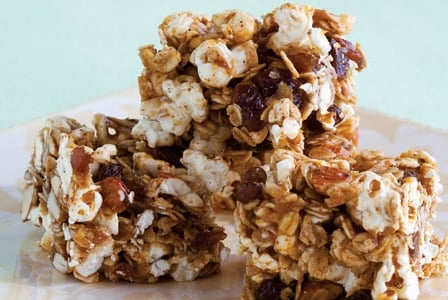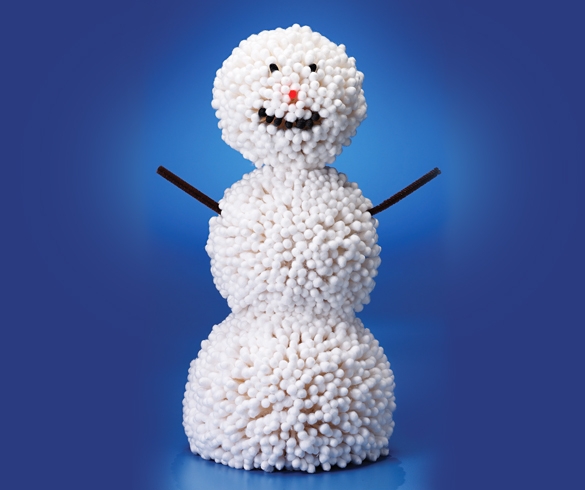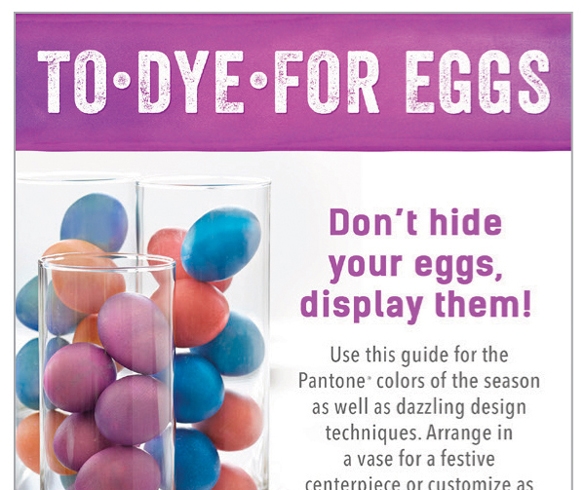
Don\’t associate the words \”whole grain\” or \”healthy\” with popcorn? Popcorn lends itself to a variety of healthy snack recipes, incorporating sweet and spicy
When one thinks of popcorn, the words “healthy” or “superfood” don’t often come to mind. That’s because the copious amounts of golden flavour added to the movie theatre offerings at the concession stand turns humble popcorn into a calorie bomb with enough grease to give you a pompadour.
But this whole grain (yes, whole grain) might just be one of the best everyday snacks. The key is to pop your own and add just the right amount of fat. Do so and you’ll be rewarding your body with a payload of antioxidants. University of Scranton researchers recently discovered that popcorn has more disease-thwarting polyphenol antioxidants than fruits and vegetables.
Plus, popcorn eaters consume about 250 percent more whole grains and 22 percent additional fibre in their daily diets than non-popcorn eaters, according to a Journal of the American Dietetic Association study. Higher fibre intakes have been linked to lower risk of mortality from chronic diseases such as heart disease.
Evidence also suggests that munching on popcorn can keep you feeling satisfied while following a calorie-controlled diet for weight loss. Full of air, popcorn is a high-volume, low-calorie food that tricks your brain into thinking you’ve eaten more calories than you actually have. A 3 cup (750 mL) serving of air-popped popcorn has a mere 93 calories and whopping 3 grams of dietary fibre.
Even adding your own butter or salt won’t bring fat or sodium levels into the same range as those found in movie theatre popcorn or some of the prepackaged microwave versions. Here’s how to get the most out of this blockbuster snack.
Recipes
- Popcorn Almond Bars
- Sticky Maple Date Popcorn
- Chocolate-Covered Popcorn Cups
- Popcorn Trail Mix
- A World of Flavours (Pocorn seasoning)
- Lemony Kale Popcorn
Think outside the bag
If the reckless use of unhealthy ingredients such as partially hydrogenated oil (read: trans fat) in some microwave popcorns isn’t enough to steer you toward popping your own on the stovetop, consider this: University of Toronto researchers found that potentially harmful chemicals that are used to line food packaging such as microwave popcorn bags can migrate into the food, ready for ingestion. Plus, buying a bag of loose kernels is significantly cheaper per serving. Store kernels in an airtight container in the cabinet, as refrigeration will dry them out.
Say no to GMO
A great deal of the corn now grown in Canada is genetically modified. If you wish to avoid GMO foods, it’s best to purchase certified organic corn kernels available at many health food stores. Also, look for gorgeous heirloom varieties such as blue corn that are available in an array of fetching hues. Beyond good looks, they have unique flavour characteristics, and they help preserve crop diversity.
Popping 101
Once you’ve mastered this basic recipe for stovetop popcorn, the flavour possibilities are endless.
Step one: Gather your materials: a pot, popping oil, popcorn kernels, and additional oil, butter, or butter alternative. The best results come from using a large, heavy-bottom stainless steel pot; however, a carbon flat-bottom wok will also yield tasty results. Choose a popping oil with a high smoke point such as peanut, avocado, grapeseed, rice bran, or organic canola. Coconut oil is a great choice too, but avoid popping in butter as it can scorch at higher temperatures.
Step two: Heat the oil and kernels over medium heat. (At higher temperatures you risk burning the kernels.) For four servings (10 cups popped), use 1 Tbsp (15 mL) popping oil and 1/2 cup (125 mL) kernels. Give the pot a little shake to coat all the kernels with oil, and then put a lid on the pot, leaving it slightly ajar to allow steam to escape.
Step three: Cook until the popping has slowed to almost a stop, shaking the pot from time to time to keep the kernels from burning. This takes about 5 minutes.
Step four: Either in the microwave or using a double boiler, melt a small amount of butter, nondairy butter alternative, or coconut oil; for four servings, use about 2 Tbsp (30 mL). Coat popcorn evenly by placing some popcorn in a large serving bowl and then topping it with some of the fat. Repeat until fat is evenly distributed. Apply additional toppings and seasonings and stir. You can also place the popcorn in a large paper, parchment, or washable cloth bag, top with the coating, seal, and shake vigorously. Apply seasonings and shake again.







